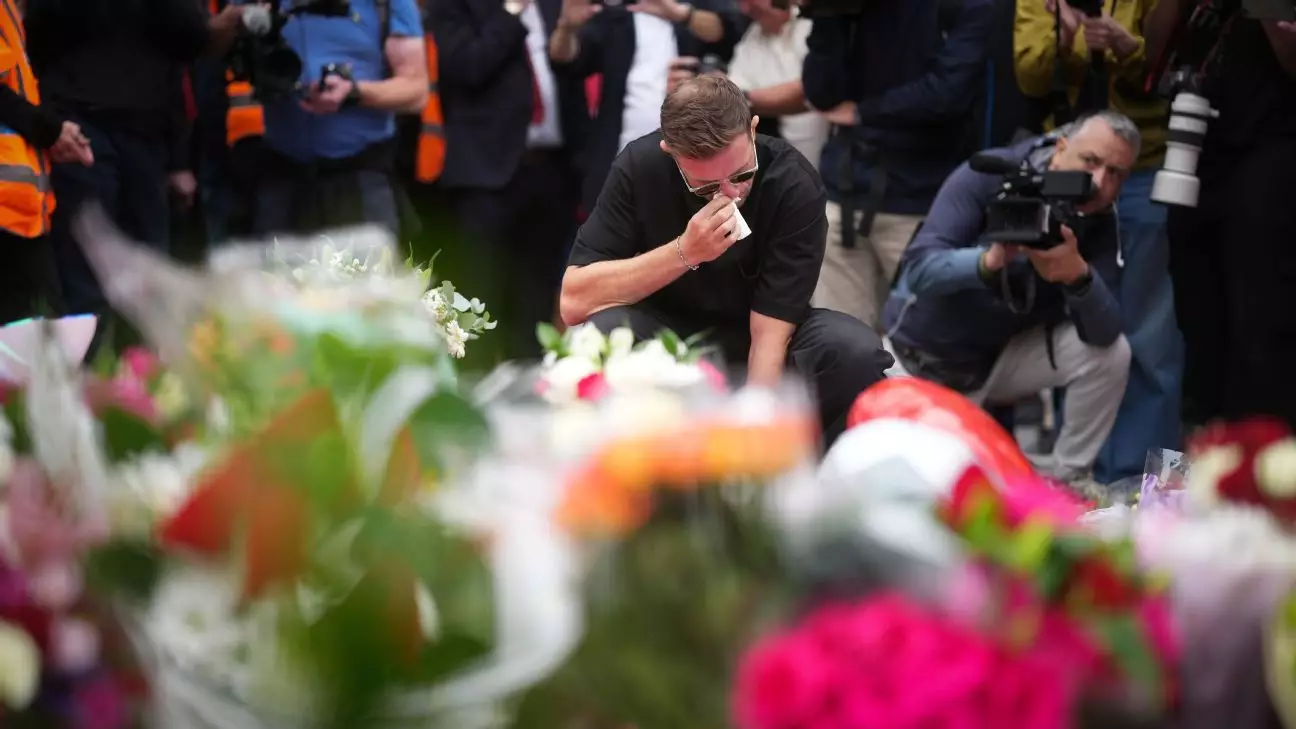Life, unpredictable and fragile, often catches us off guard, shattering the illusion of permanence. The tragic death of Diogo Jota, a talented footballer whose life was cruelly cut short at just 28, exemplifies how swiftly our sense of security can be dismantled. His collision with death near Zamora, Spain, leaves us contemplating the harsh reality that no salary, fame, or loved ones can shield us from life’s ultimate uncertainties. The collective mourning initiated by his teammates, friends, and fans reveals a universal truth: death is an indiscriminate force, unbound by status or achievement. The brutalness of this loss underscores the importance of cherishing every fleeting moment, reminding us of the temporary nature of our existence.
The devastating aspect of Jota’s death lies not only in the tragedy itself but in the profound silence that follows—an emptiness that echoes in hearts and minds long after the initial shock subsides. It beckons us to consider how life’s brevity should propel us to live more consciously, more intentionally, before the inevitable claims what we hold dear.
The Emotional Toll on the Close-Knit Community
The human response to tragedy often reveals more about ourselves than the event itself. Liverpool’s squad members, emotionally shattered, serve as a poignant testament to how intertwined personal and professional relationships are. Jordan Henderson’s tearful tribute at Anfield shows the deep bonds forged between teammates—brothers united by shared struggles and triumphs—yet ultimately vulnerable to grief. Their collective mourning transforms into a space where vulnerability is normalized, forcing society to confront the raw, often uncomfortable reality of loss.
Virgil van Dijk’s words of disbelief highlight the disillusionment that accompanies sudden death, especially when it claims what seems both precious and unwarranted—Jota’s young family, his wife, Rute, and their children. The grief extends beyond the immediate family, radiating outwards to a broader community of fans and colleagues who feel the void deeply. Their openness in expressing pain fosters a societal reflection: true strength lies not in emotional repression but in honest confrontation with sorrow. Such honesty is vital in nurturing a supportive environment where grief isn’t stigmatized but embraced as a natural part of the human experience.
The Cultural and Social Implications of Tragedy in the Public Eye
In our age of social media, grief becomes a publicly shared experience, blurring the lines between private mourning and collective tribute. The posts from Salah, Alexander-Arnold, and Henderson extend beyond mere words—they serve as healing acts, affirming that even in tragedy, community and compassion can flourish. Yet, this public mourning also exposes our society’s obsession with celebrity, sometimes risking superficiality over genuine empathy.
The outpouring of grief for Jota and his brother André Silva raises critical questions about how grief is commodified and consumed in modern culture. Are we truly engaging in meaningful mourning, or are we justattention-seeking by sharing emotional tributes? While these expressions do have value—reinforcing bonds and affirming the importance of life—they also remind us that society needs a more sustained, systemic approach to grief support. The loss of individuals like Jota should catalyze discussions about mental health, accident prevention, and community resilience, rather than just fleeting social media waves of condolences.
This tragedy also reminds policymakers and sports institutions of their responsibility to protect athletes and their families beyond the game. Traffic safety, mental health resources, and social support networks must be prioritized. Our collective response—or lack thereof—reflects how much we value lives beyond their public personas. If we are serious about helping communities heal, public acknowledgment must evolve into tangible actions that prevent future tragedies.
The Inherent Inequality of Sudden Death and Its Societal Reflection
While death strikes indiscriminately, its impact disproportionately devastates families on the margins—those lacking the social safety nets or resources to cope effectively. Jota’s death, though a moment of collective sorrow, is also a stark reminder of societal inequality. His family, and especially children, face an uncertain future, one clouded by grief, economic uncertainty, and social marginalization that often accompanies such tragedies in less privileged contexts.
The fact that Jota’s funeral is scheduled at a church near his hometown, with a wake preceding it, underscores the importance of community-based rituals in processing bereavement—a practice rooted in cultural tradition that offers comfort amid chaos. Yet, not everyone has access to such support systems. This gap reveals the urgent need for broader societal initiatives that safeguard vulnerable populations from the cruel intersections of tragedy and inequality. Mourning becomes not only personal but political, exposing the urgent necessity for policies that support grieving families, provide mental health services, and prevent preventable accidents.
Through this lens, we see that societal resilience depends on the capacity to respond compassionately and equitably. Death’s randomness demands a collective awakening: if we fail to address societal disparities, we tacitly endorse a world where only some lives are valued enough to mourn collectively. The loss of a young, promising athlete like Jota should galvanize us to fight against the injustices that exacerbate suffering, turning grief into a catalyst for progressive change.


Leave a Reply